5 Prominent Bengali Authors from the Pre-Tagore Era
- February 11, 2022

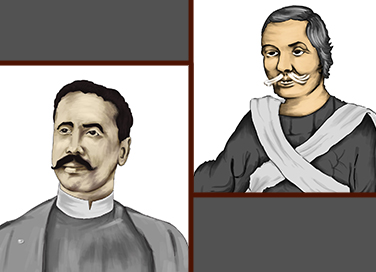
5 Prominent Bengali Authors from the Pre-Tagore Era
- February 11, 2022
Premium
By Srinidhi Murthy
The Modern Bengali Literature Era (i.e. post-1800), gave birth to numerous classic novels, biographies, religious texts and various poetic genres. Here is the list of some authors from Bengal, who will always be remembered for pioneering this golden period of Bengali literature.
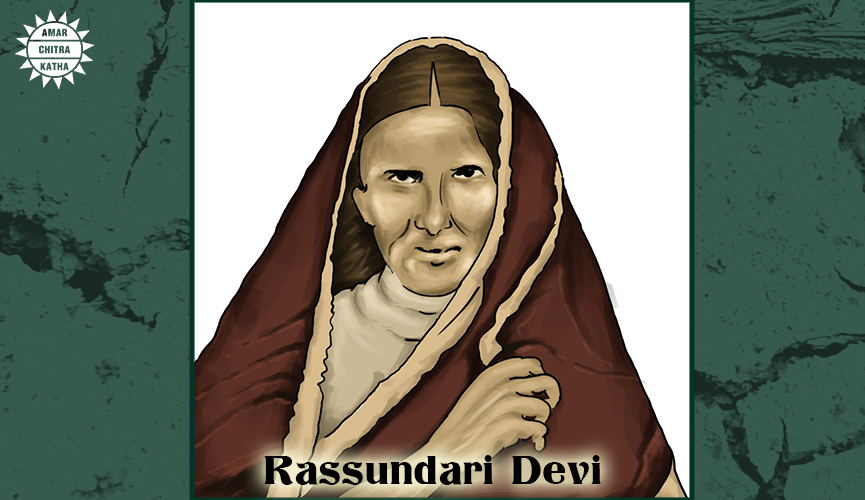
Rassundari Devi was the first Bengali author to write an autobiography. Her book, titled Aamar Jiban (My Life), was published in two parts, the first part in 1876 and the second, in 1906. Born in 1809, Rassundari Devi was raised by her widowed mother. As a child, she learnt the Bengali alphabets by repeating what was taught in the boys’ school that was held in her house. At the young age of 12, Rassundari Devi became a child bride. She learnt to read by herself post-marriage, due to her desire to read Chaitanya Bhagavatha. Rassundari Devi was the first woman in Bengali literature to write about topics such as her hardships as a child bride, the difficulties she endured to gain literacy and the experiences of her pregnancy and childbirth. She wrote about her experiences in a time when speaking about these issues was considered taboo for women. Her life is an inspirational tale of a woman who fought against all odds to fulfil her desire for literacy.
To receive more such stories in your Inbox & WhatsApp, Please share your Email and Mobile number.
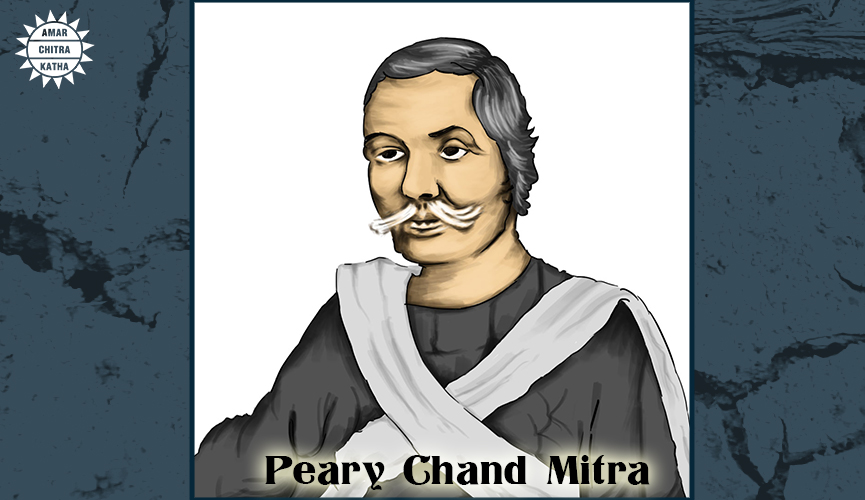
Born in Calcutta in 1814, Peary Chand Mitra is known for his contribution to the development of Bangla literature and Journalism in Bengal. His most noted novel, Alaler Gharer Dulal (The Spoilt Child) was published in 1857, under the pseudonym Tek Chand Thakur. This was one of the earliest Bengali novels and Mitra wrote it in colloquial language i.e. cholitobhasa, instead of using a formal literary style. His simple prose style was later also used by notable writers like Bankim Chandra Chatterjee. This colloquial form and style later came to be known as the Alali language. At a young age, Mitra learnt Persian and he started to learn English only when he joined Hindu College in 1827. He was a regular contributor to Bengali weekly newspapers such as Hindu Patriot, Calcutta Review, Bengal Spectator and Bengal Harkara. Notable Bangla literary works of Mitra include Alaler Gharer Dulal (1857), Mad Khaoya Bada Day Jat Thakar ki Upay (1859), Krispath (1861) and Abhedi (1871). Peary Chand Mitra breathed his last on 23 November, 1883, in Calcutta.
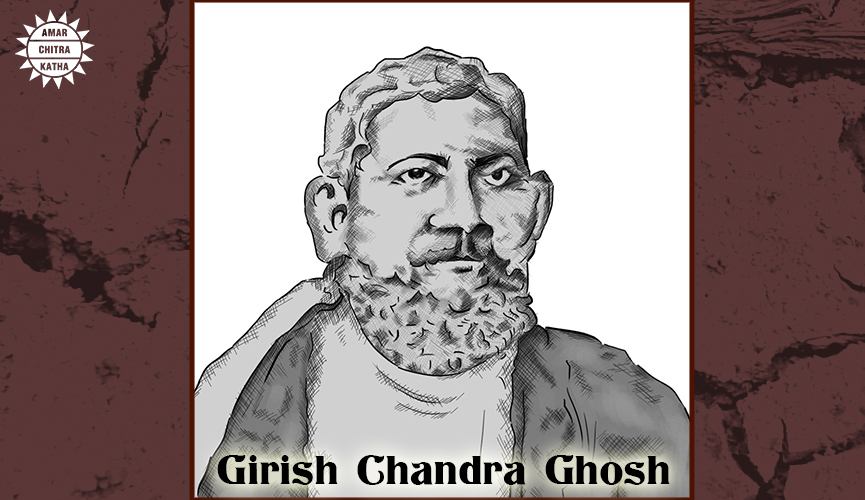
Girish Chandra Ghosh was a Bengali writer, director and actor. He was credited with being responsible for the beginning of the golden era of Bengali Theatre. Girish Chandra was born in Bagbazar, Calcutta, on 28 February, 1844, as the eighth child to his parents. He left school in 1862, after he lost both of his parents and got an apprenticeship in book-keeping with a British Company. During this time, he was introduced to the works of Ishwar Chandra Gupta and started writing songs, poems and plays. Ghosh wrote around 80 plays on religious, social and historical themes. Some of his famous works include Sitaharan (1882), Chaitanyalila (1884), Validan (1904), Chatrapati Shivaji (1907) and Sankaracharya (1910). In 1893, he also translated Shakespeare’s Macbeth in Bangla. Girish Chandra Ghosh was the author of a large number of Bangla plays and his lifelong association with the theatre contributed immensely to the development of Bengali theatre.
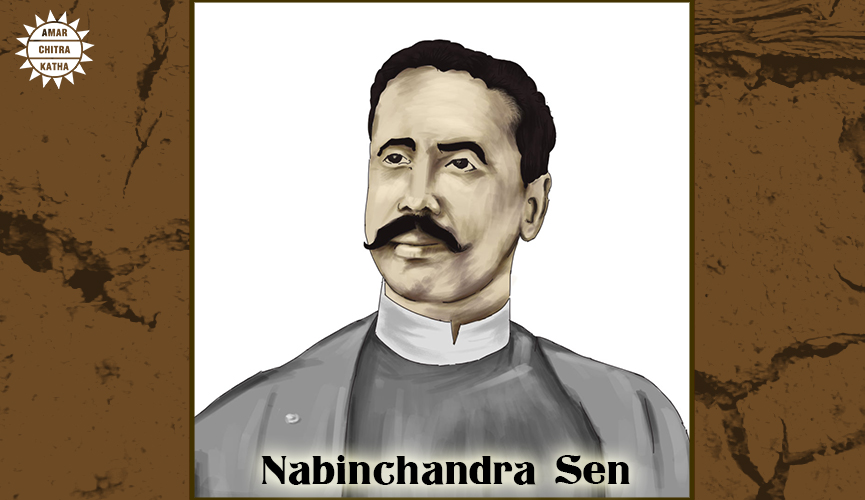
Considered one of the greatest poets and writers of Bengal, Nabinchandra Sen is known for popularising the epic narrative of the Mahabharata in Bengali language, with his three-volume series – Raivataka (1887), Kurukshetra (1893) and Prabhas (1896). Born in Noapara, Chittagong, on 10 February, 1847, Nabinchandra earned his BA degree from General Assembly’s Institution – presently the Scottish Church College. In 1871, his first volume of poetry, named Abakash Ranjani, was published, followed by the second volume in 1877. Nabinchandra wrote the biographies of Buddha, Cleopatra and Jesus Christ in Bengali and translated verses of the Markandeya Purana and Bhagavad Gita. His five-volume autobiography, Amar Jiban (My Life), documented not only the politics and administration of his time, but also the social aspirations of the educated class in contemporary Bengal society. Nabinchandra Sen died on 23 January, 1909.
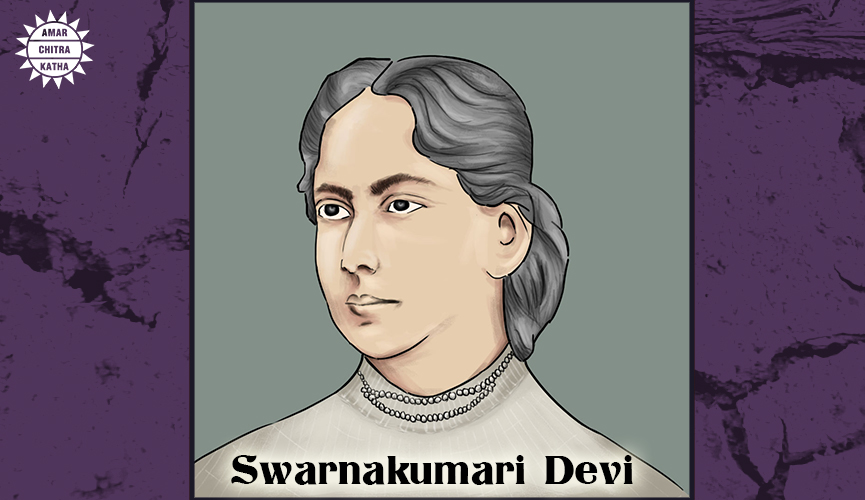
Born in Calcutta on 28 August, 1855, Swarnakumari Devi was the first female Bengali novelist to gain prominence. She was the elder sister of Rabindranath Tagore and was fourth among the daughters of Debandranath Tagore. Swarnakumari Devi was primarily educated at home and she married the well-educated Janakinath Ghoshal in 1868. Eight years after her marriage, Swarnakumari Devi published her first novel, Deep Nirban (The Snuffing out of Light), which evoked the nationalist spirit. She composed the first Bengali opera, Basanta Utsav, in 1879. In 1896, Swarnakumari Devi started an organisation named Sakhi Samiti, which not only provided shelter but also education to women, especially widows and orphans. She worked as the first female editor of Bharati, a magazine started by Jyotirindranath Tagore. Author of many novels, poems, novels, essays and plays, the life of Swarnakumari Devi will always be remembered not only for her contribution to Bengali literature but also for her role as an activist who fought for women’s liberation.
To receive more such stories in your Inbox & WhatsApp, Please share your Email and Mobile number.
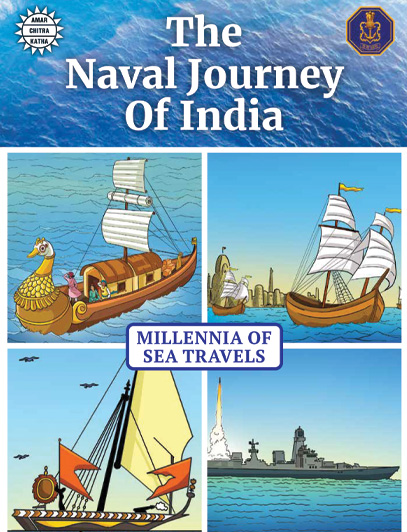
Comic of The Month
The Naval Journey of India Book I
This book is the first of a three-book series that takes a deep and detailed look at India's Naval History and a deep insight into the lives of our men and women in white. But any series on the Indian Navy has to start at the very beginning - exploring India's celebrated maritime history. Join our little hero, Bharat, and his grandfather, Commodore Sagar, as they sail into the deep blue waters of time. Book I of The Naval Journey of India takes a sweeping look at India's maritime endeavours, how the seas impacted us over millennia and how the oceans made us who we are.